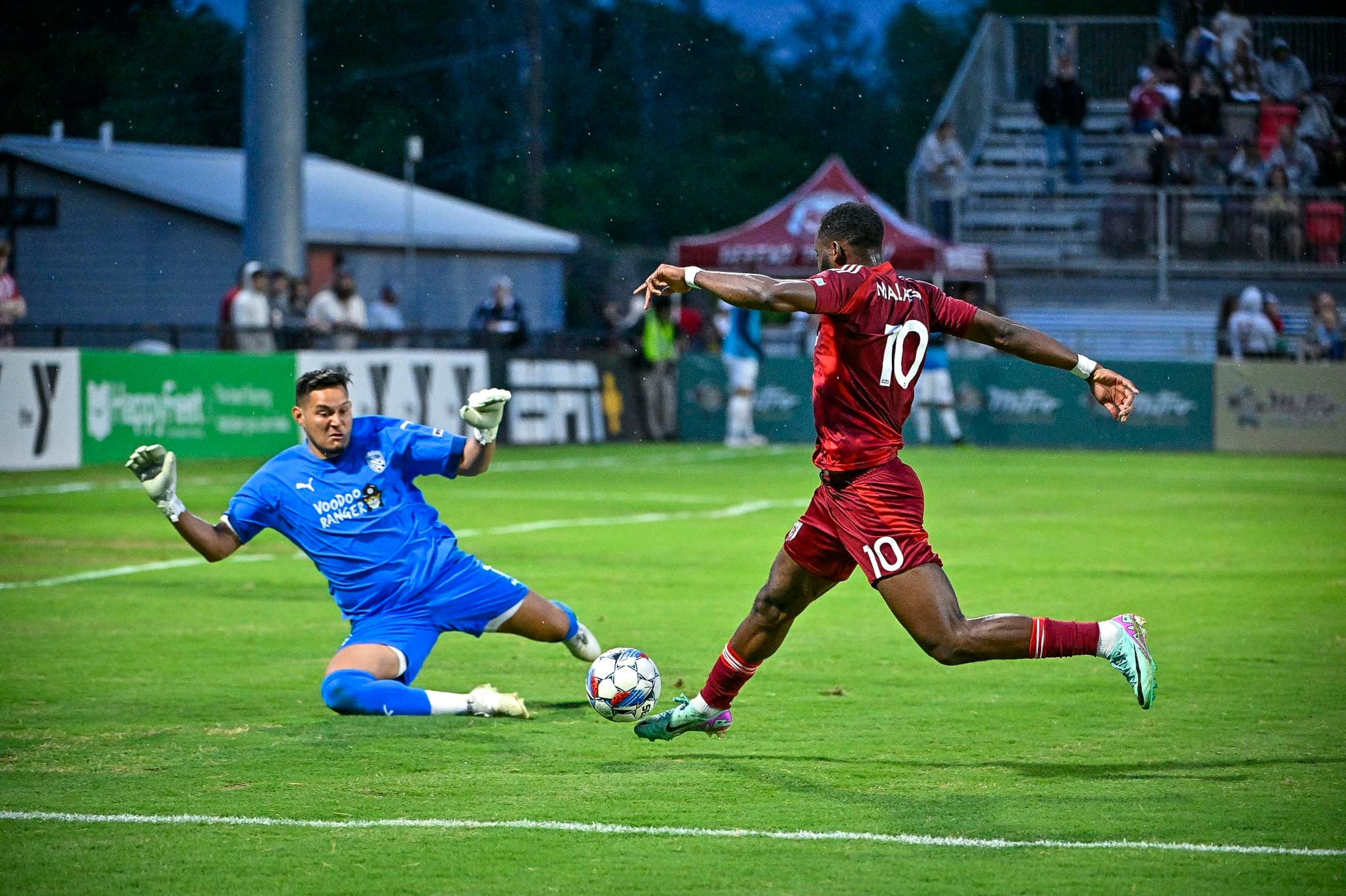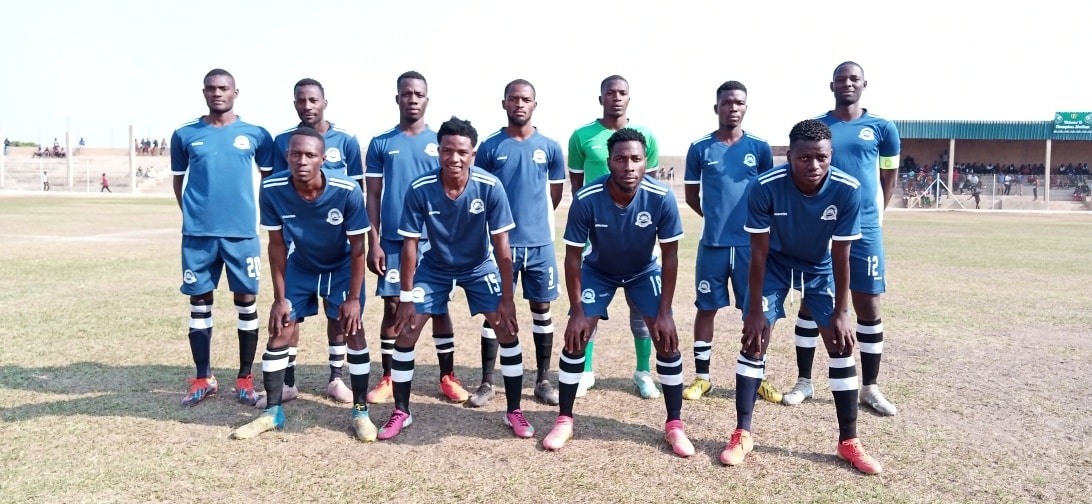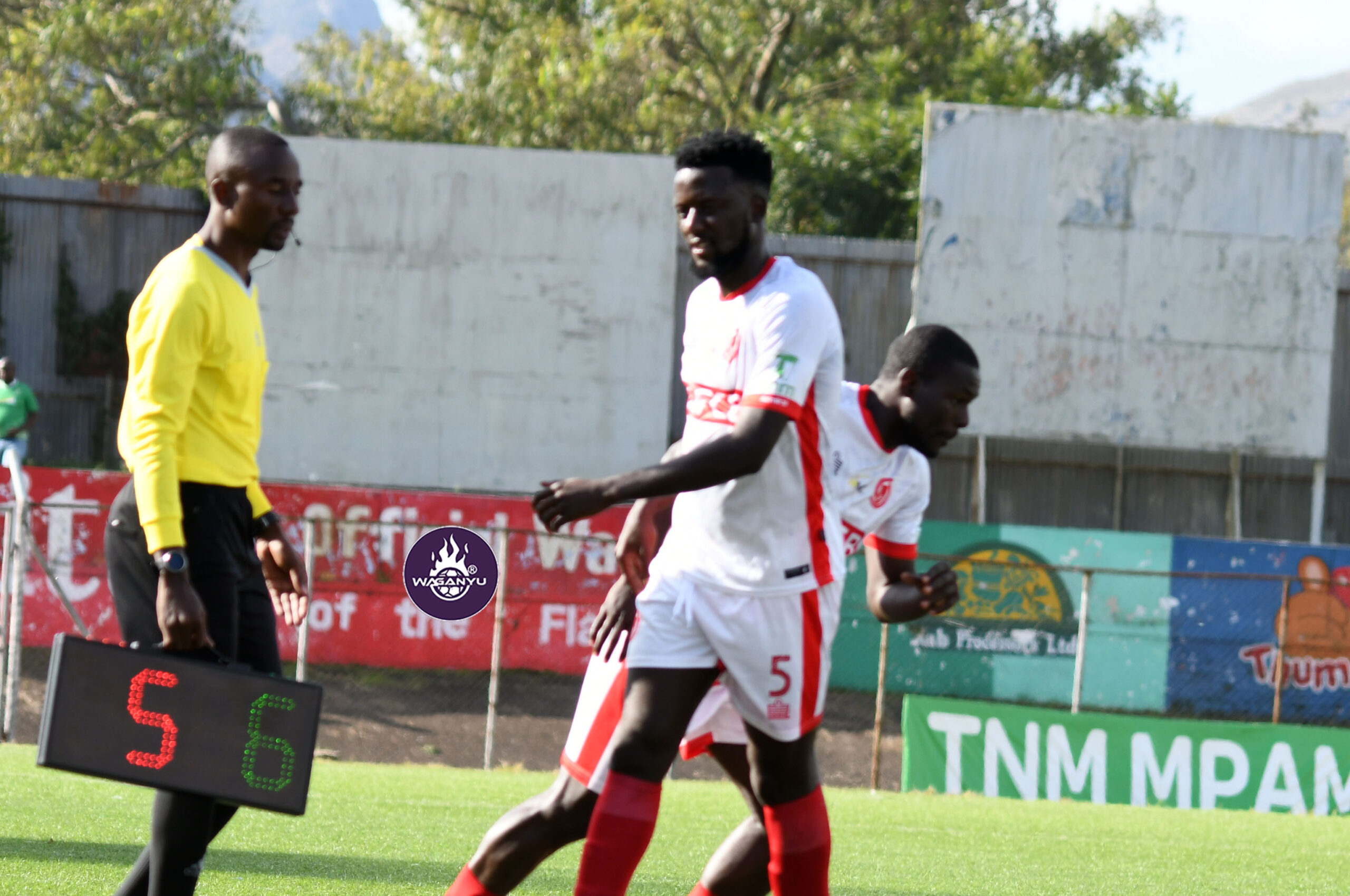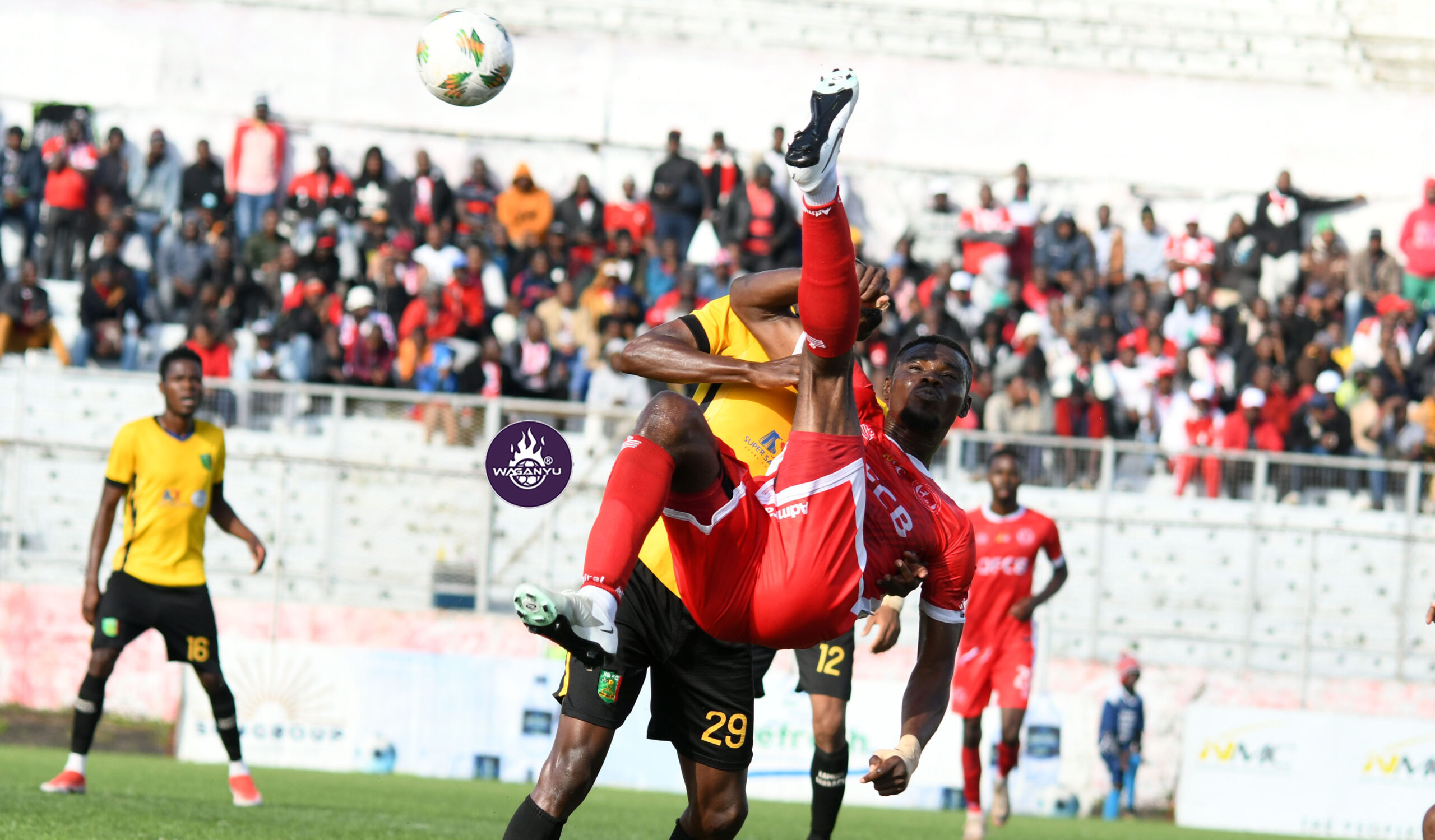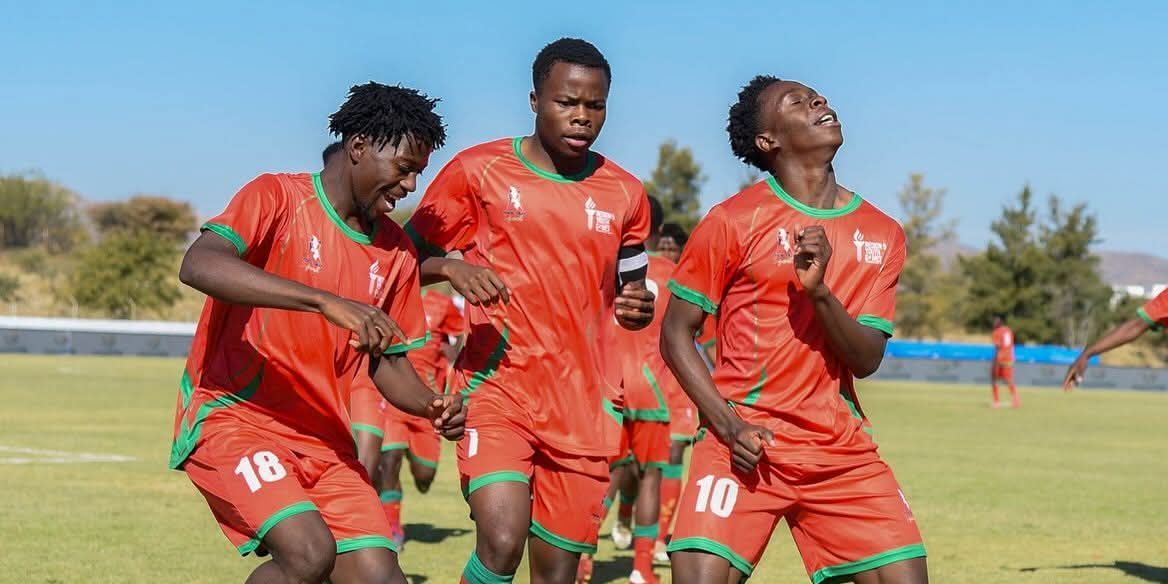Rachael Kaphaizi and Charles Kabena
In 1998, a young Mayele Malango and his family fled the Democratic Republic of Congo (DRC) as war ripped through their homeland—carrying little more than fear and hope. They crossed borders in search of safety and only found that in Malawi. They were welcomed at Dzaleka Refugees Camp—a place that became both a sanctuary and a starting point for a new life.
He had no hope as he recounts: “Malawi gave my family and me a second chance at life after we fled the Democratic Republic of Congo in 1998 due to war. We lost everything we had, but Malawi welcomed us with open arms and gave us the opportunity to rebuild from scratch. That act of kindness and generosity will forever be etched in my heart.”
Born on February 25, 1995 in Kinshasa, that boy who once chased plastic footballs in Dzaleka Camp has today become a professional player with Monterey Bay FC in the United States.
Now, he is hoped to be a pillar to take the Flames of Malawi after he earned a call–up to the Kalisto Pasuwa squad ahead of the World Cup qualifiers.
To him, it is a dream come true. For Malawi, and for those still in Dzaleka, it is a moment of pride and hope.
Life in the camp that raised him is becoming increasingly fragile. Aid cuts and global funding shortfalls are biting hard. In an interview with Devex Madalitso Kateta, the World Food Programme (WFP) warns that refugees, who have little access to jobs because of the government’s encampment policy, depend almost entirely on food assistance to survive.
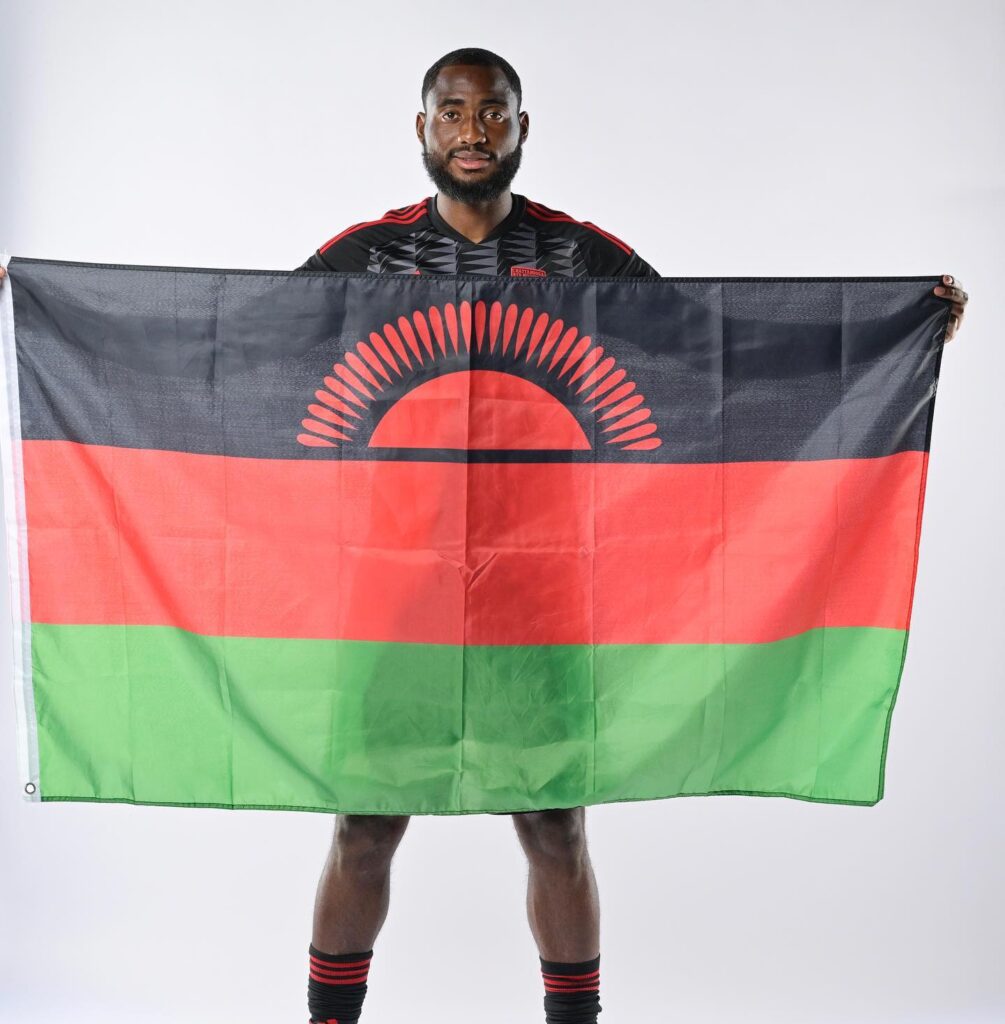
“Most of the refugees fled protracted conflict in the Great Lakes and Horn of Africa regions. With limited access to income-earning opportunities inside the camp, WFP’s food assistance is their primary means of survival,” said Hyoung-Joon Lim, WFP’s Country Representative in Malawi.
UNHCR has also been forced to shrink its presence. Staff numbers have dropped from 37 to just three, and support for health workers through the Ministry of Health has ended.
“In Malawi, we will no longer have a country office,” explained Duniya Aslam Khan, UNHCR’s communications officer for Southern Africa, adding that operations will be managed by a small national office within the government’s refugee department.
The consequences of these cuts are devastating. In Dzaleka, food is running out. Parents go without meals so their children can eat. Girls are being pulled from school, some pushed into early marriage. For many young people, education, once their ticket to a brighter future, is slipping further out of reach.
For all these and more reasons, Malango’s story is not just about football. It is about what happens when someone is given a chance. His rise from a refugee camp to the national team is a reminder that dignity, opportunity and hope can wield resilience that transforms lives.
“Now, I get to wear its [Malawi’s] colours with pride. I’m beyond grateful and excited to represent this great nation. I can’t wait to get started. See you all soon!” Malango wrote to his followers on Facebook.
Malawi’s National Football Team coach Pasuwa says he watched Mayele playing and has constantly spoken with him.
“He is a good player, hence giving him a chance to play for us,” said the soft spoken Pasuwa who also reserved praise for another international, Henry Kumwenda, claiming to have watched him play during the Four National Tournament which Malawi hosted in 2023.
As Malawi grapples with economic turbulence and as refugees in Dzaleka face hunger and uncertainty, Malango’s call up and Malawi’s forthcoming World Cup qualifying games against Namibia and Liberia have potential to help people dream. Because even in the hardest of places, which Malawi can be, hope can take root. And perhaps, one young man carrying his adopted nation’s colours for the first time, can remind us all what is still possible beyond September.


